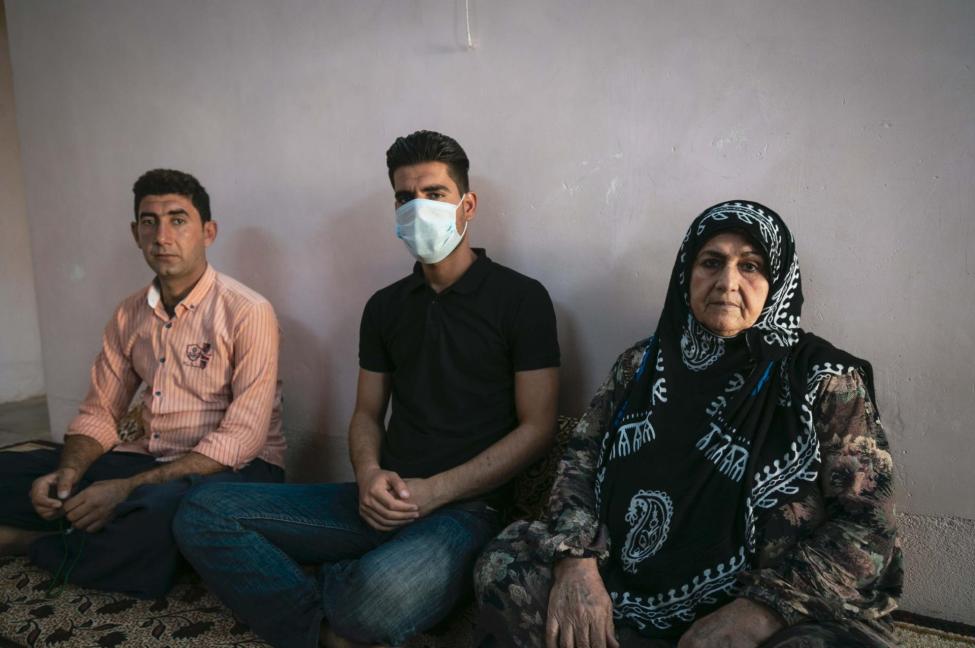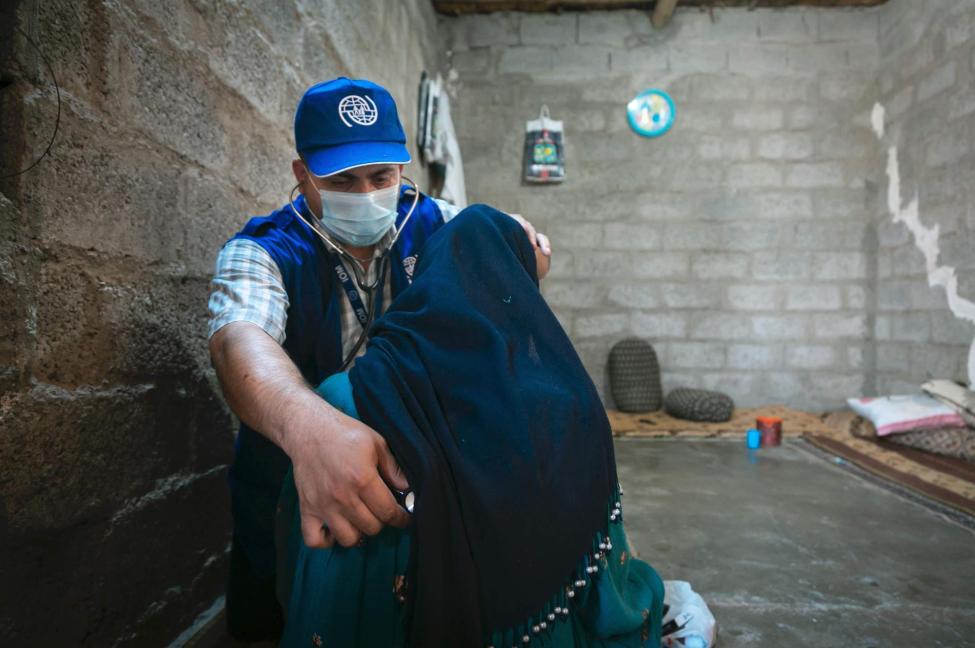-
Who We Are
WHO WE AREThe International Organization for Migration (IOM) is part of the United Nations System as the leading inter-governmental organization promoting since 1951 humane and orderly migration for the benefit of all, with 175 member states and a presence in over 100 countries. IOM has had a presence in Iraq since 2003.
About
About
IOM Global
IOM Global
-
Our Work
Our WorkAs the leading inter-governmental organization promoting since 1951 humane and orderly migration, IOM plays a key role to support the achievement of the 2030 Agenda through different areas of intervention that connect both humanitarian assistance and sustainable development. Across Iraq, IOM provides a comprehensive response to the humanitarian needs of migrants, internally displaced persons, returnees and host communities.
Cross-cutting (Global)
Cross-cutting (Global)
- Data and Resources
- Take Action
- 2030 Agenda
It was just another day at school for Ali Najmaddin, a third-year Kurdish language student at Kirkuk University, when he started coughing violently and spitting blood out. He went to the university clinic but was told that it was nothing serious. He was given some pills and sent on his way.
After classes, Ali went back to his home in Laylan, east of Kirkuk, and did not think about it again — it was April 2018. He never visited any doctors for follow-up and didn’t tell his family anything; he didn’t want to worry them, as he knew his family had no regular source of income other than his late father’s pension. Moreover, he had been an athletic strong young man who engaged in active sports; he worked often in construction as a daily laborer, and never felt that anything was wrong with his health.
Three months later, Ali woke up one morning with a severe flu, coughing again.
“I felt as if there was something in my chest; I rushed outside my room and saw blood again. This time I immediately went to hospital for a checkup and tests,” Ali recalled.
Results were soon out — he had tuberculosis.
With about 7,000 new cases every year, Iraq is now one of the countries most affected by TB in the Middle East and North Africa (MENA) region.
Years of war and sanctions since the mid-1990s have contributed to the resurgence of TB in Iraq. The situation further deteriorated after 2014, when ISIL took control of large swathes of land in Iraq and subsequent military operations to retake those areas heavily damaged the government’s health infrastructure.
Ali was shocked to learn that he had been diagnosed with such a serious disease.
“It was a very difficult moment for me. Knowing I had TB psychologically tortured me. But everything is in God’s hands in the end,” he said.
The news took a heavy emotional toll on the family as well, especially on his mother.
“When they told us Ali had TB I cried every day, and his brother grieved too. We did not know what to do, we did not have enough money for transportation to visit a doctor, let alone for check-ups and medication,” she said.
Iraq's Ministry of Health has 19 National Tuberculosis Programme (NTP) centres across the country. With financial support from the Global Fund, IOM focuses on strengthening the Iraqi NTP to fight TB and reduce the disease’s burden on the health system, by procuring medicine and laboratory supplies; training NTP staff; and coordinating mobile medical teams (MMT) that operate in seven governorates affected by conflict and displacement.
Ali visited the NTP centre in Kirkuk, where he was examined and received treatment.
He started to take the medication but became increasingly weak over the next few months , and lost weight at an alarming rate.
Something was not right. The medicine wasn’t working.
“TB affected him so much that he was like a dying man at home; always lying down, no energy for anything. I would go and lie down next to him, and touch his forehead, it was on fire,” Ali’s mother said.
Ali’s family, fearing for his life, tried reaching out to anyone who could help. A friend referred them to IOM’s MMT in Kirkuk, who paid him a visit at home. The MMT staff, in coordination with the NTP centre, found out that Ali had been taking the wrong doses of treatment, on the advice of a local medic who didn’t specialize in TB.
“This is very dangerous because wrong intake of TB medicine can worsen the illness,” said Abdul Jalil, IOM’s MMT focal point in Kirkuk.
The team took Ali back to the NTP centre for further investigation and tests; their worst fear was realized. Ali, who had a regular “TB-positive” case when he was first diagnosed in July 2018, now had Multi-Drug Resistant (MDR) case TB — a much more serious strain of the diseases resulting from the wrong intake of medication doses.
Ali was then referred to Baghdad because MDR consultations and treatment are not available in Kirkuk. Since then, IOM’s MMT has been transporting Ali to the NTP centre monthly for follow-up and laboratory tests to make sure he is following the right course of treatment .
“In coordination with the NTP, we put him on the correct dose of medication, and we follow up with him daily to make sure he is taking the medicine correctly, and to observe his condition,” said Abdul-Jalil.
“He wouldn’t have recovered had he not been referred to Baghdad,” Ali’s mother noted. “At some point his condition was so bad that we all gave up on him, but God returned him to us.”
The team also provided food packages to help him regain his strength and put on weight as he takes the medication. The food packages include high-protein food that TB patients need to regain their strength, such as tuna fish, beef, chicken breast, milk, beans and grains, cheddar cheese olive oil and others.
Ali has experienced significant physical pain and mental difficulties since being diagnosed with TB. But ever since he has been taking his medication correctly, there is hope. As of October 2019, he is recovering fast and he managed to finish his university education.
“I am feeling much better now. My coughing has stopped. I eat well; I am regaining weight. I weigh 69 kilos now, and I am recovering my strength,” he explained. “I get up and walk around, I go out and even play soccer with my brothers and friends from time to time. And I feel psychologically strong.”
His mother agreed.
“We will find a bride for him to marry soon!” she said jokingly.






